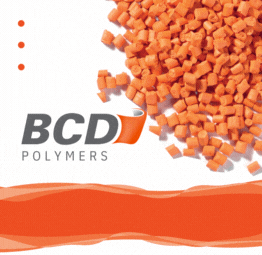All the more important it is, therefore, for packaging manufacturers to do their bit and give top priority to sustainable action. But the same also applies for consumers who are in fact quite open to such matters, as indicated by the latest studies.
In accordance with new surveys by Trivium Packaging based in Amsterdam, almost three fourths (74%) of consumers are willing to pay more for sustainable packaging. Developed and implemented in collaboration with the Boston Consulting Group, the report surveyed 15,000 consumers in the US, Europe, and South America about their preferences in terms of sustainable packaging as well as their willingness to pay more for more environmentally-friendly packaging. Overall, two out of three consumers regard environmentally-friendly, reusable packaging as important. Of the 74% indicating their willingness to pay more for sustainable packaging, almost one fourth are prepared to pay an additional ten percent or more.
Another survey can be viewed against this backdrop: one which was commissioned by the Friends of Glass and the European Container Glass Federation (FEVE) and carried out by the market research agency InSites Consulting in late 2019. It was aligned toward 10,605 consumers aged 25–65 in 13 EU countries: Austria, Croatia, Czech Republic, France, Germany, Italy, Poland, Portugal, Slovakia, Spain, Switzerland, Turkey, and Great Britain. Result: Consumers are buying more glass than ever before. Specifically, more than half of European consumers. In Germany, this concerns almost half of all consumers, at 48%. At the same time, eight out of ten Germans would recommend glass as the best packaging material to friends and family; this corresponds with an increase of six percent over comparable studies conducted in 2016.
These results are attributed to a growing awareness of the high recycling potential of glass and its environmental friendliness. Glass is 100% recyclable, is manufactured almost exclusively from natural raw materials (sand, soda, lime), and can be recycled infinitely in a closed loop – making recycled glass the most important raw material for the new production of glass packaging.
In the light of the above and important sustainability targets such as promoting the increase in recycling rates for packaging made from aluminum, ferrous metals, paper, and glass by 2022 to 90%, for plastics to 63%, the manufacturers of metal packaging, bottle and jar caps have good reason to be optimistic about the future.
Also metal packaging and lids are valuable secondary raw materials that are removed from the ground and processed for use as packaging. Afterwards, the material is put to use in other applications. Thus it is not consumed, but merely used. Metal packaging and lids not only rank high in terms of recycling (for years now, metal packaging and lids have evidenced the highest recycling rates of all packaging materials at 74.7 percent in Europe and 90.8 percent in Germany), but have also mastered the transition to a recycling economy that is the keystone of European and national legislation. This offers packagers and merchandisers a high degree of planning reliability.
This especially holds true for users of metal lids with sealing rings that contain neither PVC nor plasticizers. For unlike PVC, which may contain up to 45 percent fat-soluble plasticizers that can migrate into foods containing fats when it comes into contact with them, sealing solutions based on thermoplastic elastomere (TPE) evidence low rates of migration. With PROVALIN® from Actega DS an innovative sealant for all types of contents, filling processes and closure processes is available, that is free of PVC, phthalates and other plasticizers perceived to give cause for concern.
PROVALIN® - commercial since 2011- was developed already because of corresponding EU regulations (including EU 10/2011 and PIM), merchandiser demand for solutions without PVC and plasticizers, and consumer demand for sustainable packaging materials. With now more than one billion twist-off lids per year in the European market, there is no alternative to this PVC-free solution.
With PROVALIN® 1771 and 1741, solutions which satisfy both EU and FDA stipulations have been found for the highly-sensitive area of baby food and for particularly sensitive contents. Actega DS has been collaborating with various seal manufacturers on the difficult Press-on Twist Off (P/T) seal project since 2009. The now developed seal variants - commercial since 2018 - can be used for all contents which are heat-treated (pasteurization and sterilization) and for all different lid sizes. Extensive tests, including in terms of processing, storage, vacuum retention, opening properties and migration, are available with outstanding results.
Accordingly, PROVALIN® not only sets the standard for low-migration applications in the area of packaging; it also meets the demands by consumers and food manufacturers and trade for sustainable packaging solutions.
As market leader in the areas of water-based and UV-crosslinked overprint varnishes as well as sealing compounds for closures in the food and beverage industry, Actega Metal Packaging Solutions, comprising seven subsidiaries, offers innovative, comprehensive and sustainable solutions with its perfectly-coordinated product portfolio.
The product range comprises sealing compounds for the food and beverage industry, oil- and water-based and UV printing inks, solvent- and water-based and UV varnishes, as well as solvent-based and solvent-free adhesives.
This opens up the possibilities for perfect interplay. For example: the manufacture of all types of closures not only requires the appropriate sealing compound but also interior contact adhesives and exterior coatings, printing inks, and adhesives. Tin cans, aluminum bottles, tubes or other types of metal packaging require various varnishes, printing inks, sealants, and adhesives. The top priority is to offer the customer safe, reliable and sustainable solutions for these highly-regulated markets such as food or beverage packaging. The subsidiaries work hand in hand with their respective product portfolios. After all, both quality management and environmental management play a key role at Actega DS. Conserving resources, avoiding pollutive waste, reducing emissions, optimizing processes, and saving time and money are important goals which are consistently implemented.


